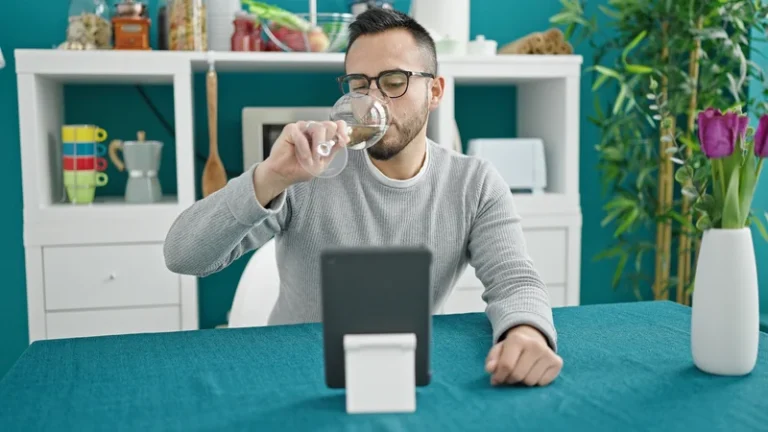
“I’ve had aches in every joint, and even now, the periodic taste of alcohol in my mouth. It’s the taste of detox, I’m guessing. Already, I’m sleeping better, feeling better, though I’m a little spacey, and my skin already looks healthier.” “I’ve made it to day six for the first time in a long time, and I’m proud to say that I’m through the worst of the withdrawal. No more sweating and headaches, and I’ve actually had three nights of sound sleep. It’s amazing how different I feel.” Alcohol withdrawal symptoms begin to ease for some and just begin to get intense for others. Some have the same symptoms as on day one and ask, “How long does this last?” The urge to relieve those withdrawal symptoms with a drink can be overwhelming. “Most of my withdrawal symptoms are gone, but I still have sharp pains in my head, can’t sleep, and get night sweats.”
Preventing alcohol withdrawal syndrome
- Knowing why you drink is essential, says Cyndi Turner, LCSW, LSATP, MAC, a Virginia therapist specializing in addiction treatment and alcohol moderation.
- Almost 8,000 responses were gathered to the question, “What were your toughest withdrawal symptoms and how did you cope?” The comments reveal a wide variety of symptoms and experiences, even within the same days, from days one to 30 and beyond.
- Alcohol abusealso affects dopamine, a neurotransmitter linked to the body’s reward system.
- That said, If you’ve been drinking excessively, then stopping drinking cold turkey can lead to withdrawal symptoms.
- It usually does this by reducing the natural production of neurotransmitters and becoming physically dependent on alcohol to provide them instead.
Minor shifts in their balance can lead to a variety of symptoms like drowsiness, loss of motor skills, euphoria, and dysphoria. Alcohol, being a neurotoxin, disrupts the balance of these neurotransmitters in the brain, and its effects are what is referred to as intoxication. A high fever, hallucinations, and heart disturbances are all reasons to seek immediate help.
For Some, Day Five Brings Relief
- Professionalalcohol withdrawal treatmentandmedical detoxfocus on creating a safe, stable and comfortable environment for the client to experience the withdrawal process.
- Typically, those who experience alcohol withdrawal have an alcohol use disorder (AUD).
- Each of these symptoms can increase in intensity depending on the severity of the withdrawal.
- Following detox, you will be ready to begintreatment for alcohol addiction.
- Outpatient alcohol detox may be a good fit for people at low risk for severe withdrawal.
- When the alcohol level suddenly drops, your brain stays in this keyed up state.
People with alcohol use disorder should be monitored by a medical professional when withdrawing from alcohol. Moderate to heavy drinkers can also benefit from medical supervision in the acute withdrawal stage. You don’t need to be diagnosed with alcohol use disorder in order to quit drinking. If alcohol is interfering with your health or your personal, financial, or professional life, consider quitting. If you drink alcohol heavily for weeks, months, or years, you may have both mental and physical problems when you stop or seriously cut back on how much you drink.
- That could be because they didn’t have normal sleep patterns to begin with.
- Within 5 minutes, you’ll receive an email with these details – free of charge.
- With the change in GABA activity in the brain, excitation andanxiety build.
- “I hope it helps someone to know the physical stuff will pass. I had a lot of odd symptoms and memory loss etc. but have noticed a definite improvement in the past week. I still crave alcohol, but it’s more the mental side now.”
- Considering that baclofen is safe in those with liver cirrhosis and reduces withdrawal symptoms due to alcohol, a controlled trial comparing it with standard treatment is required.
Prepare for potential alcohol detox

Your liver can start to heal, your risks of heart disease and cancer go down, and you may begin to sleep better. To stop drinking alcohol, you first need to understand your relationship with drinking. From there, you may need social support, consistent self-care, and new routines that can https://ecosoberhouse.com/article/mental-disorders-alcohol-use/ help redirect your mind.

There are many different types of alcohol detox programs, each with varying lengths and intensities. Some provide only detox services, while others provide comprehensive services that include ongoing care after detox. Alcohol use overstimulates GABA receptors, while detox causes them to be understimulated. In other words, effects that occur during alcohol detox are typically the opposite of effects caused by alcohol use. For serious alcohol use disorder, you may need a stay at a residential treatment facility.

If you’re having difficulty sticking to your goal or just want some extra guidance, consider reaching out for professional support. Feeling at your best physically can boost resilience and emotional strength, equipping you to weather challenges that trigger the desire to drink. Letting others know about your choice to stop drinking may help motivate you to stick with your decision.

The level of suppression depends on how much alcohol is normally in the bloodstream. The frequency and amount of alcohol use will have the greatest influence on how suppressed GABA receptors will be, but Alcohol Detox many other factors also play an important role in this process. It is used for both acute alcohol withdrawal and medium-to-long-term detoxification. This drug enhances GABA neurotransmission and reduces glutamate levels. The health consequences of consuming too much alcohol range from liver disease and digestive problems to high blood pressure, bone damage, and neurological issues, such as numbness in your hands and feet.

